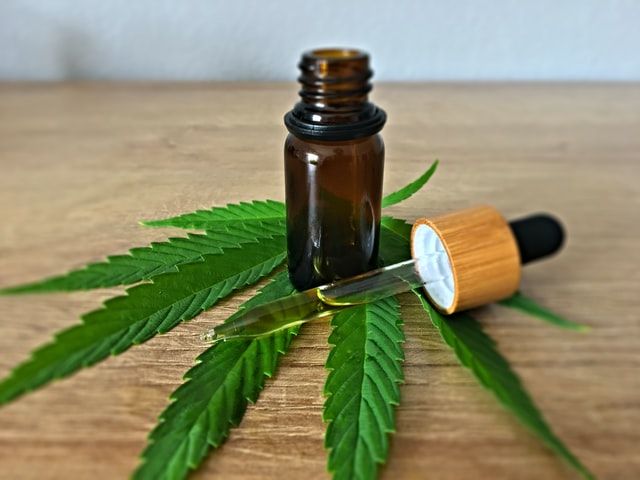
Potential for Cannabis Compounds to Prevent and Treat COVID—Not So Fast
Recently, some promising pre-clinical studies suggest that non-psychotropic compounds found in Cannabis could help prevent and treat COVID-19. But is this fact or fiction? Public health officials and researchers do not want the excitement to override the need to replicate these findings in rigorous clinical human trials before claiming they are effective treatments.
Pre-Clinical Data: Claims and Realities
Some research, where possible, is being conducted to see if non-psychotropic compounds found in Cannabis could be a treatment for COVID-19.
Oregon State University Research
As reported in the Washington Post, a recent peer-reviewed study by researchers at Oregon State University found that two non-psychotropic Cannabis compounds — CBGA and CBDA —prevented coronavirus and its “emerging variants” from infecting human kidney cells in a laboratory. The compounds bound “to the SARS-CoV-2 spike protein, blocking a critical step in the process the virus uses to infect people,” according to a January 10 university news release.
While the study is intriguing, the reality is that we won’t know whether cannabinoids are a safe and effective COVID treatment until they’re tested in human trials. This research was conducted in human kidney cells, not in humans themselves.
University of Chicago Research
An interdisciplinary team of researchers from the University of Chicago has found evidence that cannabidiol (CBD), a product of the Cannabis plant, can inhibit infection by SARS-CoV-2 in humans and mice.
Human Research
The study, published on January 20, 2022, in Science Advances, found CBD showed a significant negative association with SARS-CoV-2 positive tests in a national sample of medical records of patients taking the FDA-approved drug for treating epilepsy.
An analysis of 1,212 patients from the National COVID Cohort Collaborative revealed that patients taking a medically prescribed oral CBD for the treatment of epilepsy tested positive for COVID-19 at significantly lower rates than a sample of matched patients from similar demographic backgrounds who were not taking CBD.
Again, researchers echoed the need for rigorous human clinical trials. They caution that the COVID-blocking effects of CBD come only from high purity, specially formulated doses taken in specific situations. The study’s findings do not suggest that consuming commercially available products with CBD additives that vary in potency and quality can prevent COVID-19.
Research in Mice
The team showed pretreatment with CBD for one week before infection with SARS-CoV-2 suppressed infection both in the lung and the nasal passages of mice. “These results provide major support for a clinical trial of CBD in humans,” said the lead investigator Dr. Rosner.
Clinical Trial Prospect in Colombia
Cannabis producer, Flora Pharma announced that it is seeking approval from INVIMA, the Colombian FDA, to begin research on their patent-pending, cannabinoid-based product, citing recent studies stating the possibility of cannabinoids to display viral inhibition.
The research will look at all the potential mechanisms of cannabinoids in preventing infection from the COVID-19 virus.
Should Flora’s formulation receive INVIMA approval, this would be the first product containing cannabinoids approved by the Colombian government for use against the SARS-CoV-2 (COVID-19) virus.
Dr. Manalo-Morgan, scientist and head of Flora Pharma, explained that the study intends to “identify safe and efficacious cannabinoid products for use on SARS-CoV-2 thus allowing us to pursue the fastest path to market via a preventative immunomodulating product and to explore the possibility of use as a therapeutic.”
Back in the USA: FDA Proves to be Major Obstacle to Cannabis Clinical Trials
In contrast to the Colombian regulatory agency, the U.S. FDA makes it nearly impossible to seek approval for Cannabis clinical trials. The federal government classifies marijuana as Schedule I controlled substance. Therefore, it limits medical studies into the possible benefits of Cannabis even though marijuana is already legal and available to consumers in 36 states for medical use.
While the federal law is unpopular, there are some valid reasons it is illegal. It can affect thinking and memory, increase the risk of accidents, harm the lungs, and lead to cancer. It is also addictive.
Public Opinion
There’s strong public support for the federal legalization of marijuana. Fifty-nine percent say marijuana should be legal either for medical and recreational use, and 32 percent say it should be legal just for medical use (32 percent). However, according to the survey, fewer than one in ten (8 percent) prefer to keep marijuana illegal in all circumstances, conducted by Pew Research Center’s American Trends Panel.
For the foreseeable future, it seems like the promise of the two pre-clinical Cannabis studies to treat COVID will remain elusive until the federal government legalizes marijuana. Meaningful Cannabis COVID research may need to be conducted outside the realm of the United States due to regulations in this country surrounding marijuana and healthcare.
Research and materials for this article were compiled, written, and distributed on behalf of the National Public Health Information Coalition. The views and opinions expressed in this blog are those of the various authors and do not necessarily reflect the official policy or position of the National Public Health Information Coalition or its members
References:
Cannabinoids Block Cellular Entry of SARS-CoV-2 and the Emerging Variants - PubMed (nih.gov)
US law makes scientific research on marijuana too expensive and complicated - The Washington Post
Can Cannabis prevent COVID? Not by smoking it, experts say | Miami Herald
FDA and Cannabis: Research and Drug Approval Process | FDA
Pros and Cons of Medical Marijuana (verywellhealth.com)
https://www.pewresearch.org/fact-tank/2019/11/14/americans-support-marijuana-legalization/

